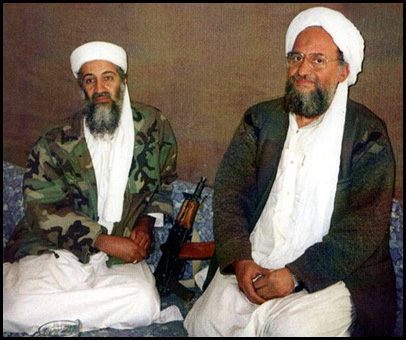Who Is Al Qaeda’s Insider At The BBC?
 WHO is the BBC employee who may be part of an Al-Qaeda “propaganda media network”? The Daily Telegraph has got its hands on WikiLeaks files that suggest Al Qaeda might have an insider at the BBC World Service.
WHO is the BBC employee who may be part of an Al-Qaeda “propaganda media network”? The Daily Telegraph has got its hands on WikiLeaks files that suggest Al Qaeda might have an insider at the BBC World Service.
The US military has seized a number of phone books and phones from jihadis that contain the number of a line at the BBC.
What can it mean?
When the BBC reporter Alan Johnson was abducted by Gaza Islamists in 2007, Fayad Abu Shamala was allowed to help with his release. Shamala was employed by the BBC. Shamal was also a member of Hamas.
Martin Walker told us:
There was the disturbing case of Fayad Abu Shamala, the BBC Arabic Service correspondent, who addressed a Hamas rally on May 6, 2001, and was recorded declaring that journalists in Gaza, apparently including the BBC, were “waging the campaign shoulder to shoulder together with the Palestinian people”. Pressed for an explanation, the subsequent BBC statement said: “Fayad’s remarks were made in a private capacity. His reports have always matched the best standards of balance required by the BBC.”
Here’s the leaked information:
A detainee assessment, dated 21 April 2007, states: “The London, United Kingdom (UK), phone number 0044 207 XXX XXXX was discovered in numerous seized phone books and phones associated with extremist-linked individuals.
“The number is associated with the British Broadcasting Corporation (BBC).” Analysis by The Daily Telegraph suggests the number is one for Bush House, home of the BBC World Service.
The assessment continues that US forces uncovered many “extremist links” to this number, suggesting that extremists could have made contact with BBC employees who were sympathetic to extremists or had information on “ACM [anti-Coalition Militia] operations”.
It says: “(Analyst Note: Numerous extremist links to this BBC number indicates a possible propaganda media network connection. Network analysis might provide leads to individuals with either sympathetic ties to extremists or possibly possessing information on ACM operations.)”
The BBC’s director of global news, Peter Horrocks, responds:
The reference to “network analysis” seems more likely to be a suggestion that intelligence officers should look for other suspects in possession of the phone number than a suspicion that there were BBC employees sympathetic to the extremist cause. In that context, the suspected “propaganda media network” would clearly relate not to the BBC but to a network of extremists who have a BBC number in common.
The BBC Belfast newsroom, where I worked in the 1980s, used regularly to receive claims concerning terrorist violence from extremists. By any reasonable interpretation, if a number of those extremists were then caught in possession of the BBC newsdesk number an intelligence report on the subject would have been more likely to conclude that the extremists were part of a network rather than the BBC was part of such a network.
Fair enough. Now just tell us who the BBC worker is and all will be made right…
Posted: 27th, April 2011 | In: Key Posts, Reviews Comment | TrackBack | Permalink


